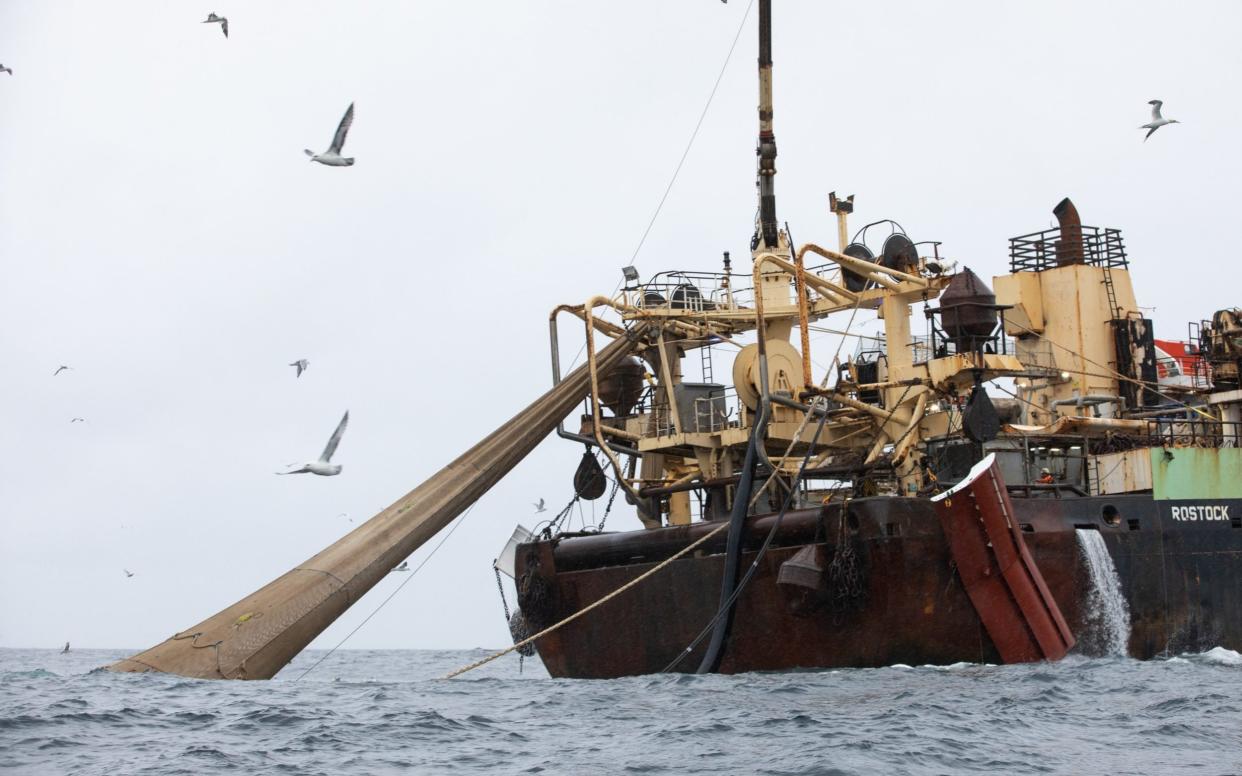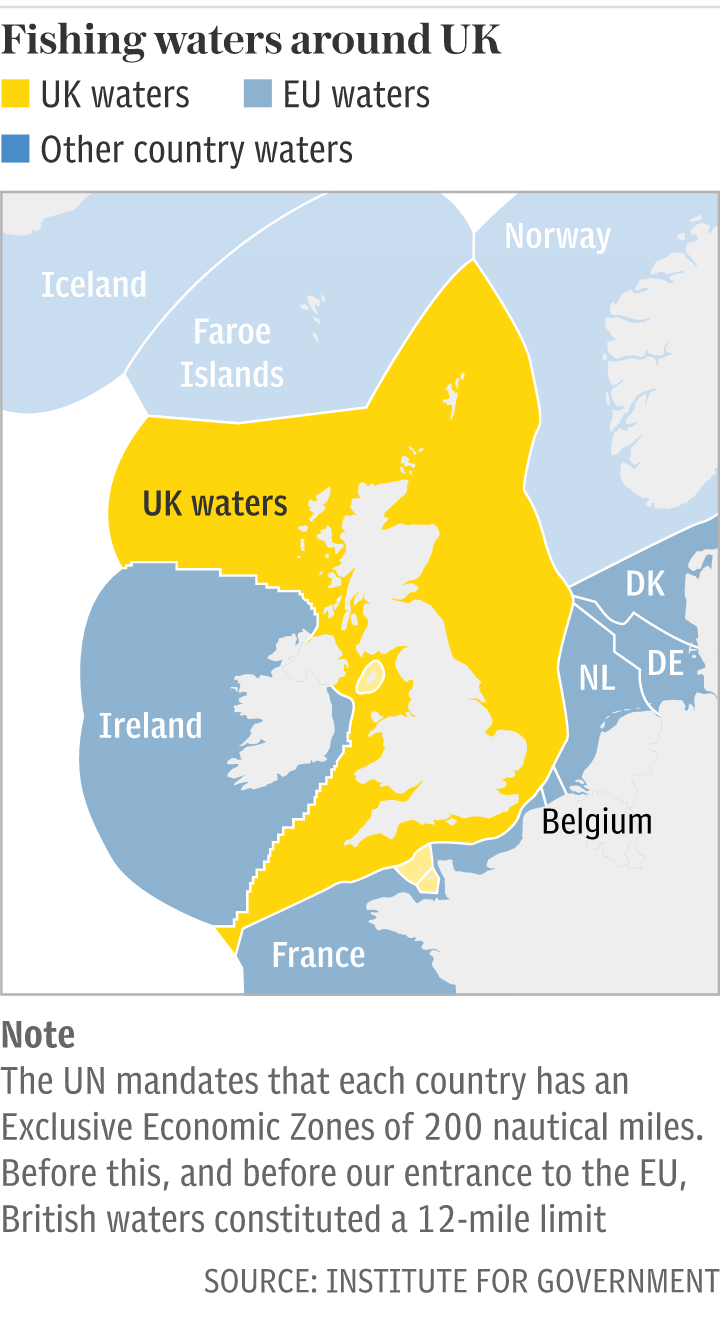Nearly all fish caught in protected areas of British waters end up in EU, investigation finds

Nearly all fish caught in a marine protected area off the coast of Britain ended up in the EU, an investigation has found, as trawlermen were accused of "unlawful asset stripping".
A report by Blue Marine Foundation, a leading NGO, found that the UK accounted for less than five per cent of the more than 100,000 tonnes of fish that were brought to shore at Dogger Bank in the North Sea in 2017 and 2018.
The data will boost calls for the Government to ban destructive fishing in the area after the UK leaves the EU on January 1.
Separate analysis by the Marine Conservation Society has found that Dogger Bank could store up to five million tonnes of carbon, equivalent to running 200,000 cars annually.
The NGO says damage to the seabed from trawlers could damage £200 million worth of carbon storage habitat by 2040, at a time when the UK is trying to drive its overall emissions down.
The Government is currently consulting on what extra protections to extend to five marine protected areas including Dogger Bank, where sandeels, crabs and flatfish provide a vital food source for birds, porpoises and seals.
The area has been the subject of a recent campaign by Greenpeace, which has dropped boulders in the sea in a bid to stop bottom trawlers which they say are destroying the seabed.
Blue argues that all destructive fishing practices in the area are illegal under the Offshore Habitats Regulations which outlines protections for marine sites and said the data revealed an “unlawful asset-stripping operation” in the Dogger Bank.
“What should make it even easier for ministers to enforce the law is the disclosure today that almost none of this unlawful fishing activity is actually benefiting the UK Treasury and in fact it is damaging a marine asset that absorbs lots of carbon, thereby costing the UK money reducing its emissions elsewhere in the economy,” said Charles Clover, executive director at Blue.
MCS, Blue and Greenpeace recently joined charity Oceana in writing to Defra ministers to call for swift protection for all 73 of the UK’s offshore marine protected areas once the UK is free from the Common Fisheries Policy from next year, including a ban on pelagic supertrawlers and bottom towed fishing gear.
But ministers are hesitant to move too quickly while negotiations over fishing rights are ongoing with the EU.
“What’s happening on the Dogger Bank is not an isolated example – throughout the UK’s waters, we see supposedly protected areas full of destructive industrial fishing boats that don’t even land their catch in UK ports,” said Will McCallum, head of oceans at Greenpeace.
“Now with Brexit looming large on the horizon, our Government must seize this second chance to turn promises into a reality by properly protecting our marine protected areas and ensuring that our local, more sustainable fleet has great access to our fish.”

A Defra spokesperson said: “The Common Fisheries Policy has restricted our ability to implement fisheries management measures within offshore marine protected areas. From 1 January 2021, we will be an independent coastal state, with the power to introduce measures for conservation purposes.
“We will be able to decide which vessels can access and fish our waters. The new licensing framework within the Fisheries Act will allow us to apply conditions to the activities of all fishing vessels in our waters – regardless of their nationality – and they will have to abide by UK rules around sustainability and access to our ‘Blue Belt’ of protected waters.
“The Marine Management Organisation (MMO) has already undertaken a call for evidence to inform the management decisions of five marine protected areas, including Dogger Bank.”

 Yahoo News
Yahoo News 
